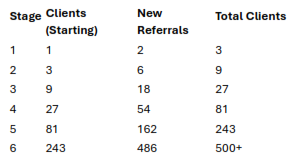The Impact of FSMA Section 21 Changes on Financial Promotions and the Mortgage Broker Community
- Adam Wyrill
- Feb 12, 2024
- 3 min read
The Financial Services and Markets Act (FSMA) 2000 has long been the cornerstone of the UK's financial regulation, providing a framework for the oversight and governance of the financial services industry. Among its provisions, Section 21, which pertains to financial promotions, has been subject to scrutiny and subsequent changes. These amendments have significant implications for the financial sector, particularly for the mortgage broker community that relies on purchasing leads from third-party lead generators. This article explores the effects of these changes, highlighting the benefits and challenges they present to mortgage brokers.
Understanding FSMA Section 21 Changes
Section 21 of the FSMA prohibits the promotion of financial products unless the firm or individual making the promotion is authorised by the Financial Conduct Authority (FCA) or the content is approved by an authorised entity. The recent amendments to this section aim to tighten the regulations around financial promotions to enhance consumer protection, ensure clarity, and mitigate misleading information.
The changes focus on enhancing the due diligence requirements for firms, ensuring that all financial promotions are fair, clear, and not misleading. This involves stricter criteria for the approval of promotions and an emphasis on the responsibility of authorised firms in approving content. Additionally, the amendments introduce more robust requirements for the accuracy and transparency of financial promotions.
Benefits for the Mortgage Broker Community
Enhanced Trust and Credibility: The stricter regulations around financial promotions are likely to enhance the credibility of the mortgage industry. For mortgage brokers, this means that leads generated from compliant financial promotions are of higher quality, as potential clients are better informed and have a higher level of trust in the information presented.
Improved Consumer Protection: The changes aim to protect consumers from misleading promotions, which is beneficial for reputable mortgage brokers. This creates a level playing field, where brokers compete based on the quality of their services rather than the aggressiveness or misleading nature of their marketing strategies.
Clearer Guidelines: The amendments provide clearer guidelines on what constitutes a compliant financial promotion. This clarity helps mortgage brokers and their marketing partners (such as lead generators) to create content that meets regulatory standards, reducing the risk of inadvertent non-compliance.
Challenges for the Mortgage Broker Community
Increased Compliance Costs: Adhering to stricter regulations inevitably leads to higher compliance costs. Mortgage brokers will need to invest more in legal advice and compliance functions to ensure their promotions, and those of their third-party lead generators, meet the new standards. This could be particularly challenging for smaller brokers with limited resources.
Dependency on Third-Party Lead Generators: Many mortgage brokers rely on third-party lead generators for a significant portion of their business. These changes place additional pressure on lead generators to comply with the new regulations, which could affect the volume and quality of leads they can provide. Brokers will need to closely monitor their lead sources to ensure compliance, adding another layer of complexity to their operations.
Adapting to the Changes: The transition to the new regulatory framework requires adjustments in how mortgage brokers and their marketing partners operate. This includes training staff, revising marketing materials, and potentially restructuring marketing strategies. The time and effort required to make these adjustments can be significant, especially for those who are heavily reliant on digital and social media marketing.
Navigating the Changes
To navigate these changes successfully, mortgage brokers and their lead generation partners must take proactive steps. This includes:
Strengthening Compliance Functions: Investing in compliance infrastructure and expertise will be crucial. This may involve hiring compliance officers or seeking external legal advice to ensure all financial promotions are in line with the new regulations.
Building Stronger Partnerships: Brokers should work closely with their lead generation partners to ensure mutual understanding and compliance with the new regulations. This could involve joint training sessions or collaborative workshops to align marketing strategies with regulatory requirements.
Leveraging Technology: Technology can play a key role in ensuring compliance. Automated compliance tools can help in monitoring and auditing financial promotions in real-time, reducing the risk of non-compliance.
Focusing on Quality: The emphasis should be on generating high-quality leads through compliant and transparent financial promotions. This approach is likely to yield better conversion rates and customer satisfaction in the long run.
Conclusion
The changes to FSMA Section 21 present both opportunities and challenges for the mortgage broker community. While they aim to enhance consumer protection and ensure the integrity of financial promotions, they also impose additional compliance burdens on brokers and their lead generation partners. By understanding these changes, investing in compliance, and focusing on quality, mortgage brokers can navigate the evolving regulatory landscape successfully, ensuring sustainable growth and consumer trust.

Comments